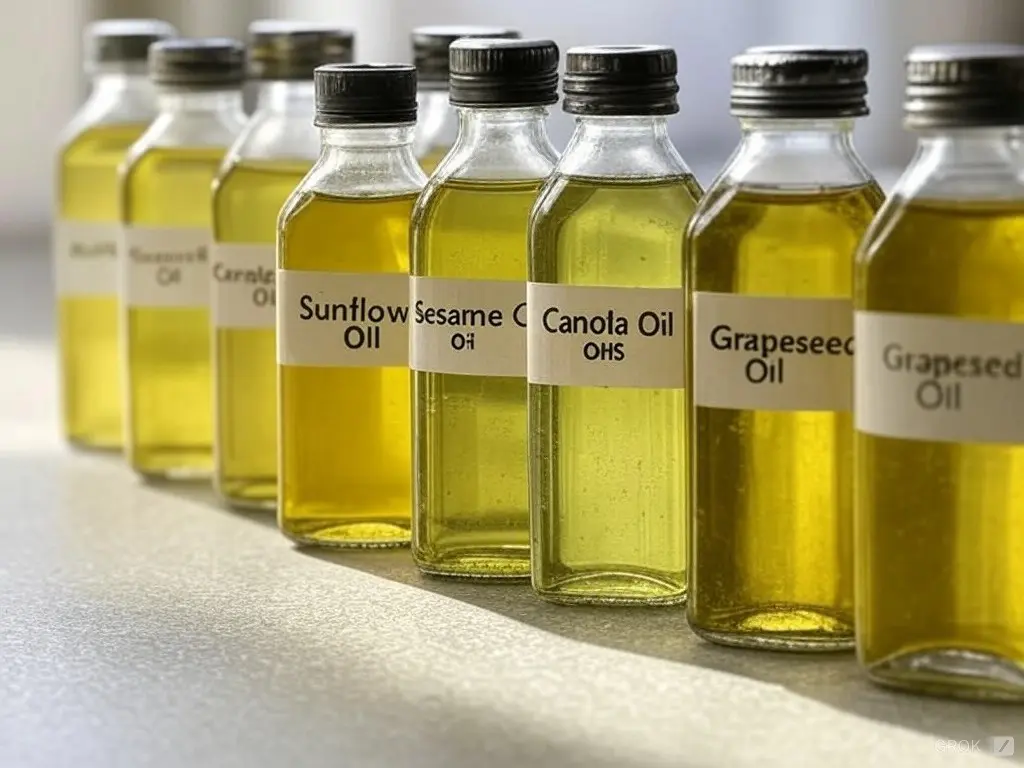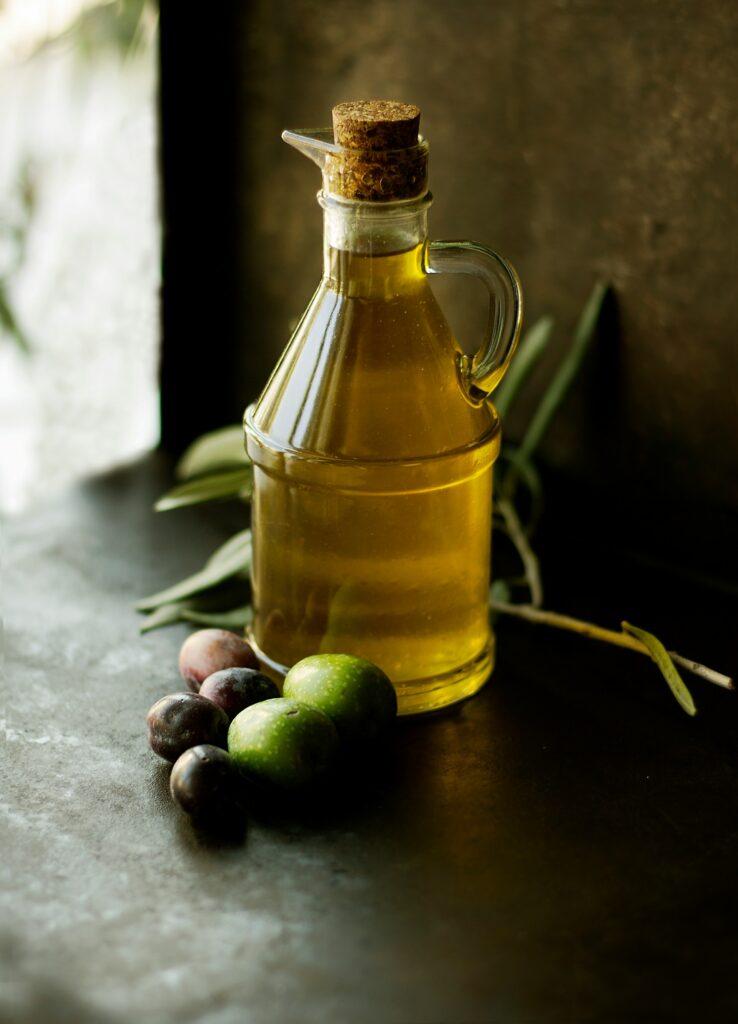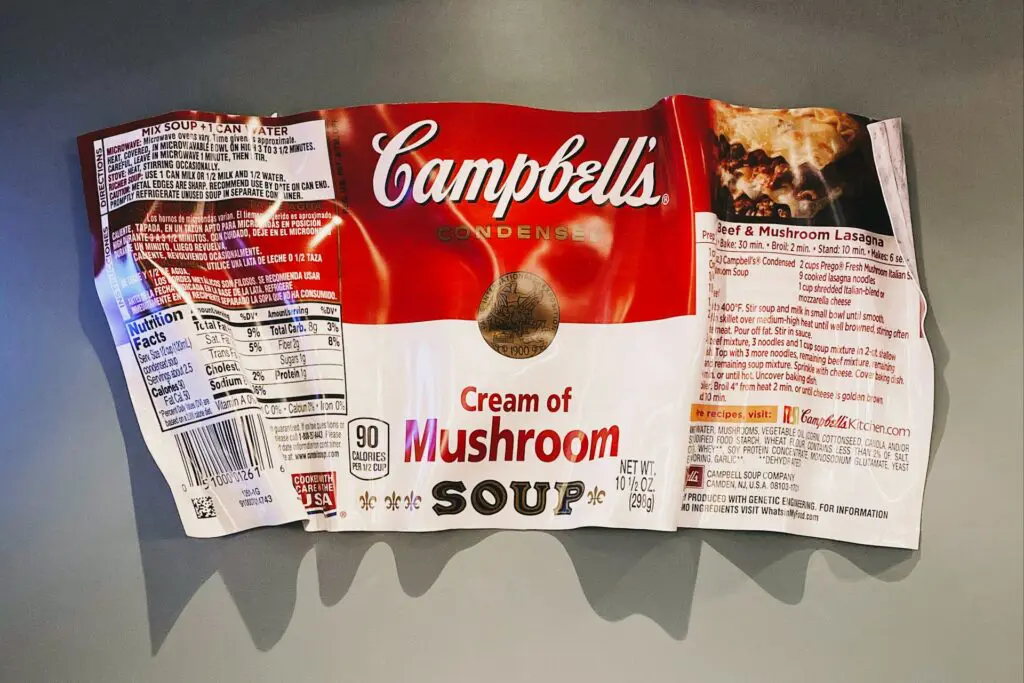Recent scientific studies have sparked renewed concern about seed oils, with researchers finding troubling connections between these common cooking ingredients and cancer. A December 2024 study found high levels of inflammatory compounds from seed oils in colon cancer tissue, while removing seed oils from the diet might slow prostate cancer progression.

These findings have many people taking a closer look at which cooking oils they should avoid. Let’s break down what you need to know about seed oils, which ones to watch out for, and what alternatives might be healthier for cooking.
Complete List of Seed Oils to Watch Out For
Given these health concerns, here are the main seed oils that experts suggest avoiding:
1. Canola Oil (Rapeseed Oil)
- Processing concerns: Heavily processed using chemical solvents
- GMO status: Often genetically modified
- Health implications: May contain harmful trans fats from processing
- Common uses: Widely used in processed foods and restaurants
- Hidden sources: Many commercial baked goods and snacks
2. Soybean Oil
- Processing method: Chemical extraction using hexane, which is associated with harmful effects in humans
- GMO status: Predominantly from GMO soybeans
- Health concerns: High in omega-6 fatty acids, linked to inflammation
- Where you’ll find it: Most processed foods, commercial baked goods
- Restaurant use: Commonly used for deep frying
3. Corn Oil
- Processing: Chemically extracted from corn germ
- GMO status: Usually from genetically modified corn
- Health impact: High in inflammatory omega-6 fatty acids
- Common products: Fried foods, margarine, processed snacks
- Restaurant presence: Popular in fast-food chains
4. Cottonseed Oil
- Origin concerns: From cotton plants heavily treated with pesticides
- Processing: Requires intensive chemical processing
- Health risks: May contain natural toxins from cotton plant
- Uses: Common in packaged snack foods
- Hidden presence: Often in commercial frying oil blends

5. Sunflower Oil
- Processing method: Chemical extraction
- Fatty acid content: Very high in omega-6 fatty acids
- Health considerations: May contribute to inflammatory conditions
- Common products: Chips, crackers, baked goods
- Marketing confusion: Often marketed as a healthy option
6. Safflower Oil
- Processing: Usually chemically extracted
- Health impact: Can disrupt omega-3 to omega-6 balance
- Uses: Vegetable oil blends, processed foods
- Concerns: Highly refined and processed
- Marketing: Sometimes promoted as heart-healthy despite concerns
7. Grapeseed Oil
- Extraction method: Chemical solvents often used
- Processing: Typically highly refined
- Health considerations: Very high in omega-6 fatty acids
- Common uses: Salad dressings, mayonnaise
- Restaurant use: Popular in high-end restaurants
8. Rice Bran Oil
- Processing concerns: Often chemically extracted
- Health impact: High in omega-6 fatty acids
- Uses: Asian cuisine, processed foods
- Considerations: Less common but still worth avoiding
- Marketing: Often promoted as a healthy alternative
9. Vegetable Oil Blends
- Composition: Usually a mix of above seed oils
- Processing: Highly refined and processed
- Health concerns: Combined negative effects of multiple seed oils
- Prevalence: Very common in processed and restaurant foods
- Cost factor: Often chosen for their low price point
What About Palm Oil?
While not technically a seed oil, palm oil deserves mention as it’s often discussed alongside seed oils. Palm oil is extracted from the fruit of oil palm trees, not from seeds. While it’s less processed than many seed oils and has a higher smoke point, it comes with its own concerns:
- Environmental impact: Major contributor to deforestation
- Processing: Often highly refined for commercial use
- Health considerations: High in saturated fats
- Quality varies: Significant differences between crude and refined versions
- Common in processed foods: Often used as a replacement for seed oils
Hidden Sources of Seed Oils
Here’s a list of foods that can guide you in checking labels when you’re shopping:
- Breakfast cereals
- Granola bars
- Crackers and chips
- Frozen meals
- Baked goods
- Deep-fried items
- Salad dressings
- Sauces and marinades
- Breaded foods
- Cookies and baked goods
- Mayonnaise

Healthy Alternatives for Cooking
1. Olive Oil
- Best uses: Salad dressings, marinades, low-heat cooking
- Benefits: Rich in antioxidants and healthy fats
- Tips: Choose extra virgin for maximum benefits
- Smoke point: 325-375°F (extra virgin)
- Storage: Keep in a cool, dark place
2. Coconut Oil
- Best uses: Baking, medium-heat cooking
- Benefits: Contains beneficial medium-chain triglycerides
- Applications: Perfect for baked goods and sautéing
- Smoke point: 350°F
- Type: Choose unrefined for maximum benefits
- Note: High in saturated fat; use in moderation
3. Avocado Oil
- Best uses: High-heat cooking, roasting
- Benefits: High smoke point, neutral flavor
- Versatility: Great for all cooking methods
- Smoke point: 520°F
- Quality: Look for cold-pressed options

Making the Switch: Practical Tips
In Your Kitchen
- Replace seed oils gradually: Start by mixing seed oils with healthier alternatives like olive or avocado oil in your cooking, and then gradually increase the proportion of alternative oils.
- Learn new cooking techniques: Experiment with methods that require less oil, such as steaming, poaching, or using a pressure cooker, which can help reduce the overall oil usage.
- Store oils properly: Keep oils in a cool, dark place to prevent oxidation. Oils with high polyunsaturated fat content (like flaxseed oil) should be refrigerated.
When Eating Out
- Ask about cooking oils used
- Request olive oil for salads
- Choose grilled over fried foods
- Be aware of hidden oils in sauces
- Focus on whole, minimally processed foods
Reading Labels
- Check ingredient lists carefully
- Look for hidden sources of seed oils
- Be aware of alternative names
- Watch for “vegetable oil” listings
- Pay attention to oil blends

Expert Perspectives
While recent research has raised serious concerns about seed oils, nutrition experts emphasize several key points:
- Home cooking with seed oils is less problematic than restaurant use
- The biggest concern is their prevalence in processed foods
- Moderate consumption in home-cooked meals is generally considered safe
- Focus should be on reducing processed food intake overall
- Individual responses to different oils may vary
Final Thoughts on Seed Oils to Avoid
Recent cancer research has made it clearer than ever why having a list of seed oils to avoid is important for your health. While completely eliminating these oils can be challenging, being mindful of their presence in your food and making informed choices about alternatives can make a significant difference. Remember to consult with healthcare providers about specific dietary changes, and focus on gradual improvements rather than dramatic changes to your cooking habits.
More from Bananomad
- Uncover the top 10 benefits of acupuncture therapy. Enhance your health with natural pain relief, stress reduction, and better sleep.
- From Couch to 5K: learn to overcome challenges and build a sustainable running routine.
- Unwrap 12 unique YETI gifts you won’t find in most holiday guides. These lesser-known treasures make perfect presents for outdoor enthusiasts this season.


Leave a Reply